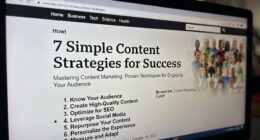Firstly, it’s possible to reach Band 7 in just three months with a smart plan. In fact, many test-takers see big gains: over 40% improve by two or more bands in 3 months. This means your goal is within reach. However, consistency is key: set a daily routine and stick to it, even if it’s just a bit each day. For example, scheduling 2–3 hours of IELTS study daily is often recommended by experts. We’ll break down a month-by-month plan covering reading, writing, listening, and speaking, so you can study steadily and confidently.
Month 1: Build a Strong Foundation

Initially, focus on understanding the IELTS Academic format and building core skills. Learn the test structure (Academic vs General) and timing so nothing surprises you. Next, work on your vocabulary and grammar base – for example, use flashcards and simple books to learn common academic words. At the same time, practice reading daily by skimming and reading a variety of texts (news, journal articles, IELTS passages). This will improve your speed and comprehension. In listening, tune your ear by hearing English often: listen to podcasts, news clips or lectures each dayedvoy.com. These activities will build your comfort with English context.
-
Know the exam format: Read about the Academic IELTS sections and timing so you know what to expect.
-
Expand vocabulary: Use flashcards or word lists to learn new words from newspapers, textbooks, or IELTS materials.
-
Daily reading practice: Spend at least 30 minutes reading English sources (e.g. online articles, journals). Skim first, then read carefully to understand ideasedvoy.com.
-
Daily listening practice: Listen to English (podcasts, news, lectures) to get used to different accents and speeds. Try to catch main ideas each time.
Month 2: Skill-Building and Practice
Next, intensify practice on each skill, especially your weaker areas. If writing or speaking needs work, devote more time to those. Use every day to practise writing essays and reports (Task 1 and 2) on different topics. For instance, draft one essay each week and ask a teacher or friend to review it. In speaking, talk about common IELTS topics: practise answering questions out loud, record yourself, and try speaking for the full 2-minute monologue in Part 2. Meanwhile, keep up reading and listening practice so you don’t lose ground.
-
Practice writing tasks: Write short essays or reports regularly. Focus on clear ideas and correct grammar. If you struggle, copy model answers and note useful phrasespw.live.
-
Speaking drills: Speak English daily. Find a speaking partner or record your answers to sample questions, then self-evaluate or get feedback. Practice fluency over accuracy at first, then correct mistakes.
-
Continue reading/listening: Maintain at least 30–60 minutes of reading and listening each day to reinforce skills from Month 1.
Month 3: Mock Tests and Final Review
Finally, use Month 3 for full practice tests and refining skills. Take several full IELTS practice exams under timed conditions. This will build stamina and help with time management. Moreover, simulating real test conditions means you learn to handle pressure and pacing. After each test, review errors carefully: note recurring mistakes in grammar or vocabulary. Work on those weak spots. For instance, if you miss many details in listening, slow down podcasts or use transcripts to find what you missed.
-
Full mock tests: Each week, do at least one complete practice test (4 sections) with strict timing. Review your answers carefullytakeielts.britishcouncil.org.
-
Review and refine: Analyze mistakes from mocks. If you had trouble with a question type, practice that section. Spend extra time on your weakest skill(s).
-
Test-day strategy practice: Practice pacing (e.g. leave 5 minutes to review answers on each section) and familiarize yourself with the question paper format.
Final Tips for Test Day
First and foremost, rest well and relax. The night before the exam, get a good sleep so you’re alert. On the test day itself, prepare all documents (ID, confirmations) and arrive early to avoid stress. During the test: read instructions carefully and keep an eye on the clock. Stay calm if a section is tough; skip a hard question and come back if time permits. Finally, believe in your preparation. Recall that you’ve steadily studied for three months, so have confidence in your ability.
-
Prepare logistics: Pack your ID and materials (pens, water) the night before. Know the test center location.
-
Health and mood: Eat a good breakfast, stay hydrated, and arrive early.
-
Time management: Keep track of time in each section. For reading, don’t spend too long on one question; for speaking, take a moment to think before answering, but don’t pause too long.
Overall, three months is enough time if you study smartly and consistently. By splitting your study into focused monthly goals, you cover all skills step by step. Importantly, practice under test conditions and review every mistake. With dedication and this plan, achieving Band 7 is within reach. Stay positive and keep at it – your hard work will pay off on exam day!









